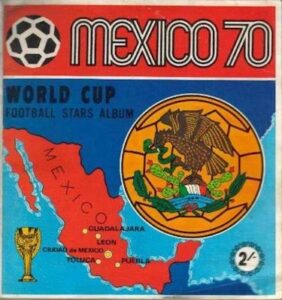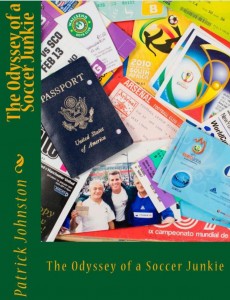Book Review – In the Heat of the Midday Sun: The Indelible Story of the 1986 World Cup by Steven Scragg
 In the Introduction to In the Heat of the Midday Sun, Steven Scragg puts forward, a theory “that you’re chemically wired to your first World Cups.”
In the Introduction to In the Heat of the Midday Sun, Steven Scragg puts forward, a theory “that you’re chemically wired to your first World Cups.”
My first memories are as an eight-year old when on holiday in Torquay during the summer of 1970 and the World Cup in Mexico. I don’t recall the games as such and all my memories centre on the England v West Germany Quarter-Final and the infamous 3-2 loss. To my eyes and ears all the shops and hotels seemed awash with England squad pictures and Union Jack flags in their windows and the sound of ‘Back Home’ the England World Cup song ever present. I was still two years from attending my first ever game ‘live’ but remember everyone in the hotel we were staying at crowding round the television and the resulting disappointment as World Cup holders, England exited the competition despite leading 2-0 at one point.
Given that for me my first real World Cup was the one held in West Germany in 1974. A tournament of just 16 teams, with four groups of four, with the top two progressing to a further mini-league each containing four teams, with the winners of each meeting in the Final. Memories that are still so clear in my mind include the huge thunderstorms that affected a number of games, a meeting between East and West Germany, Scotland not losing a game but exiting on goal-difference, the beauty and brutality of the Netherlands 2-0 win over Brazil, the birth of the Cruyff turn in the game against Sweden, and the bitter disappointment that the Dutch didn’t lift the newly designed trophy.
And on that basis for me, as Scragg’s theory suggests, those 1970 and 1974 burn more brightly and more special, even taking into account England’s Semi-Final appearances in Italia ’90 and Russia in 2018.
For Scragg, whilst he admits that 1982 is his favourite World Cup, he sees 1986 in Mexico “in his mind as the last great World Cup” and in the books Introduction, he cites his reasons why each of the tournaments since 1998 “has lost a little bit more of its shine”. With Qatar 2022 on the horizon Scragg opines, “I’m not sure that FIFA will ever fully recover its composure.” Only time will tell.
The reality is that the World Cup in 1986 wasn’t supposed to be held in Mexico and Chapter One, details how in typical murky FIFA tradition, Colombia was chosen as the host country for the thirteenth staging of the competition. With Columbia withdrawing in 1982 unable to finance the hosting, a shortlist was drawn up involving Mexico, the USA and Canada (who in 2026 will joint-host the tournament). With more sleight of hand from FIFA, Mexico landed the prize becoming the first country to host two World Cups.
One of the great things about Scragg’s excellent books to date (A Tournament Frozen in Time: The Wonderful Randomness of the European Cup Winners’ Cup, Where the Cool Kids Hung Out: The Chic Years of the UEFA Cup and The Undisputed Champions of Europe: How the Gods of Football Became European Royalty) is that that never run in an orthodox, simple timeline approach, with his research and ability to look from a different angle making them engaging for the reader.

So within In the Heat of the Midday Sun, before he gets down to the business of the 1986 tournament, he takes readers on a wonderful aside as he describes the joy (with all the enthusiasm of the 12 year old Scragg was back in 1986) of looking at a completed Panini sticker album. These albums have been a staple for football fans since their first outing in 1970 and many of us have uncompleted versions from our childhood World Cups (this reader included!).
This is followed by a third chapter, The Hand of God, where Scragg makes the interesting point that to fully appreciate the 1986 World Cup, the infamous first goal from England’s defeat to Argentina has to be taken out of the equation. However, this is monumentally difficult because as the author observes, “it’s the defining image of the 1986 World Cup finals and it’s perhaps even the most distinguishing aspect of the entire history of the tournament stretching back to is very inception in 1930.” And we know that once the global audience is focused on Qatar later in 2022, the footage will once again be rolled out.
With these first three chapters out of the way, Scragg gets down to the tournament itself and takes an interesting path in the remaining fifteen. Rather than simply take it match-by-match as the games were played, he focuses on the teams as they were knocked out of the competition. In doing so, Scragg demonstrates his extensive research skills and tells the stories of all the participants, their path to qualification and their eventual exit from the tournament until Argentina are left as victors lifting the trophy for the second time, eight tears after first victory in their homeland.
Scragg is wonderfully able to conjure up the atmosphere of the time, such as the sweltering heat and the strange sounding commentary, always with a seemingly faraway echo, that accompanied the television images, but also some very specific things which take us back to watching certain games. From the England v Argentina Quarter-Final Scragg details the following, “a match was played out…on 22 June 1986, the midday sun blazing high in the sky, that spidery shadow lurking ominously in the centre circle.” Reading it I was instantly transferred back to watching the game at my local cricket club – a small well observed detail sparking that memory.
Ultimately this is a book which truly reflects Scragg’s joy and boyhood enthusiasm at watching the 1986 tournament and indeed comes across in every page. A tournament which despite the Hand of God goal, has a naivety and innocence that you sense won’t be felt in the 2022 version in Qatar.
(Publisher: Pitch Publishing Ltd. May 2022. Hardcover: 352 pages)
Buy the book here: Mexico 1986
 Odyssey: a long and eventful or adventurous journey or experience.
Odyssey: a long and eventful or adventurous journey or experience.